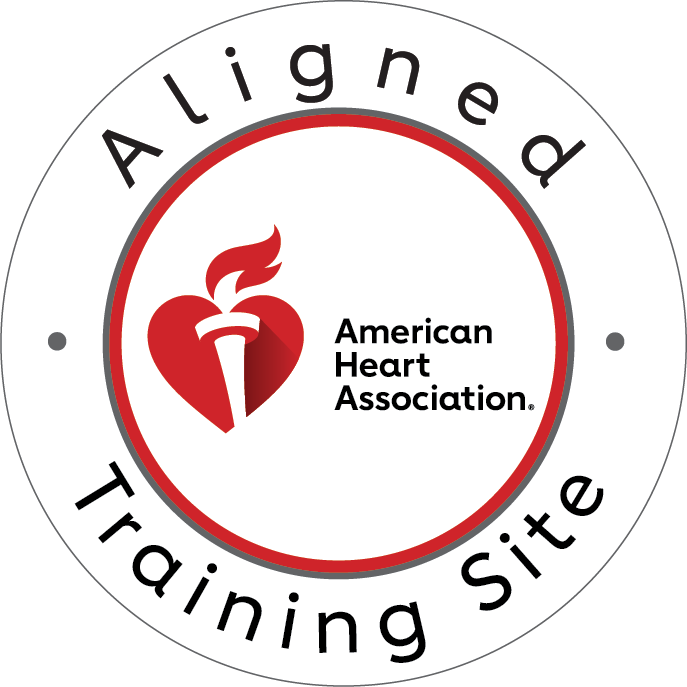Cardiac arrest is a sudden and life-threatening event that can happen to anyone, anywhere, at any time. In such critical moments, the ability to perform Cardio-Pulmonary Resuscitation (CPR) can be the difference between life and death. However, CPR techniques evolve, and skills can diminish without regular practice and updates. This is where CPR Memphis steps in – a beacon of hope and preparedness in the heart of Tennessee.
At CPR Memphis, the commitment to empowering communities through CPR training is unwavering. As an American Heart Association training site, it offers a range of courses, including initial certifications and crucially, CPR renewal. The emphasis is not just on learning the techniques but on mastering them through stress-free, hands-on instruction.
The Need for CPR Renewal
Cardiac emergencies, such as sudden cardiac arrest, present a significant threat to individuals’ lives and well-being. To understand the importance of CPR renewal, it’s crucial to grasp the prevalence and severity of these incidents.
A. Statistics on Cardiac Arrest Incidents:
- Cardiac arrest prevalence in the United States: Despite advances in medical technology, cardiac arrest remains a leading cause of death nationwide, affecting individuals of all ages and backgrounds.
- Survival rates and the critical role of immediate CPR: Statistics demonstrate that prompt initiation of CPR significantly increases the chances of survival for cardiac arrest victims, underlining the importance of bystander intervention.
- Regional impact in Memphis and surrounding areas: Examining localized data sheds light on the frequency and severity of cardiac emergencies, emphasizing the need for preparedness within communities.
B. Importance of Regular CPR Training Updates:
- Evolving CPR guidelines and techniques: CPR protocols evolve based on scientific research and advancements in resuscitation science. Regular training updates ensure that individuals are equipped with the latest techniques endorsed by organizations like the American Heart Association.
- Research-backed advancements: Ongoing research leads to continuous improvements in CPR effectiveness. Renewal courses allow participants to integrate these advancements into their practice, optimizing outcomes for cardiac arrest victims.
- Readiness for high-pressure situations: By refreshing their skills regularly, individuals maintain confidence and competence in responding to cardiac emergencies, even in stressful scenarios where quick action is paramount.
C. Potential Consequences of Outdated CPR Knowledge:
- Reduced efficacy of outdated techniques: Techniques once considered standard may become obsolete as CPR guidelines evolve. Failing to update skills could result in suboptimal outcomes for individuals in need of immediate intervention.
- Increased risk of hesitation or errors: Outdated knowledge may lead to hesitation or errors during emergency response, potentially exacerbating the situation for cardiac arrest victims and reducing their chances of survival.
- Impact on community resilience: Communities are stronger and more resilient when individuals are prepared to respond effectively to emergencies. Outdated CPR knowledge undermines community readiness and the ability to save lives in critical situations.
III. CPR Memphis: Empowering Communities
CPR Memphis stands as a beacon of preparedness, offering comprehensive training programs designed to empower individuals and communities to respond effectively to cardiac emergencies.
A. Overview of CPR Memphis Training Programs:
- Comprehensive offerings: CPR Memphis provides a range of courses, including initial certifications and renewal options, covering Basic Life Support (BLS) for Healthcare Providers, Advanced Cardiovascular Life Support (ACLS), Pediatric Advanced Life Support (PALS), as well as CPR and First Aid courses.
- Accreditation: As an American Heart Association training site, CPR Memphis ensures that its programs meet the highest standards of quality and compliance with current guidelines, instilling confidence in participants.
- Tailored instruction: Courses are designed to cater to various skill levels and professions, ensuring that participants receive relevant and practical training tailored to their needs.
B. Emphasis on Stress-Free and Hands-On Learning:
- Learning environment: CPR Memphis creates a supportive and encouraging atmosphere conducive to learning, minimizing stress and anxiety associated with training.
- Hands-on practice: The curriculum prioritizes hands-on practice, allowing participants to develop proficiency in CPR techniques through realistic simulations and scenarios.
- Experienced instructors: CPR Memphis employs experienced instructors who are dedicated to providing personalized guidance and feedback, fostering confidence and competence among participants.
C. Accreditation by the American Heart Association:
- Commitment to excellence: CPR Memphis’s affiliation with the American Heart Association underscores its commitment to upholding the highest standards of CPR training and certification.
- Recognition and credibility: Accreditation by a reputable organization like the American Heart Association enhances the credibility of CPR Memphis’s programs and ensures that certifications are recognized and respected nationally.
- Access to resources: Through its affiliation with the American Heart Association, CPR Memphis gains access to the latest resources, guidelines, and training materials, enabling it to continually enhance the quality and relevance of its programs.
CPR Memphis’s dedication to empowering communities through comprehensive, hands-on training not only equips individuals with life-saving skills but also fosters a culture of preparedness and resilience in the face of cardiac emergencies.
IV. Course Offerings
CPR Memphis provides a diverse range of courses tailored to meet the specific needs of healthcare professionals, first responders, educators, and members of the community.
A. BLS for Healthcare Providers:
- Target audience: Designed for healthcare professionals, including doctors, nurses, paramedics, and other medical personnel.
- Curriculum: Covers essential life-saving techniques such as CPR, AED usage, and relief of choking in adults, children, and infants.
- Certification: Upon successful completion, participants receive certification from the American Heart Association, valid for two years.
B. ACLS (Advanced Cardiovascular Life Support):
- Target audience: Geared toward healthcare providers who are involved in the management of cardiac emergencies in advanced settings such as hospitals and critical care units.
- Curriculum: Focuses on advanced interventions for cardiac arrest, including advanced airway management, pharmacology, and teamwork dynamics during resuscitation.
- Certification: Participants receive ACLS certification from the American Heart Association upon meeting course requirements.
C. PALS (Pediatric Advanced Life Support):
- Target audience: Aimed at healthcare providers who care for pediatric patients in emergency and critical care settings.
- Curriculum: Covers pediatric-specific life support techniques, including assessment, resuscitation, and stabilization of critically ill or injured children.
- Certification: Successful participants are awarded PALS certification by the American Heart Association, valid for two years.
D. CPR and First Aid Courses:
- Target audience: Open to individuals from various backgrounds, including teachers, daycare providers, lifeguards, and members of the general public.
- Curriculum: Provides instruction on CPR techniques for adults, children, and infants, as well as basic first aid skills for managing common medical emergencies.
- Certification: Participants receive CPR and First Aid certification upon completion, demonstrating proficiency in life-saving techniques.
CPR Memphis’s comprehensive course offerings ensure that participants receive specialized training relevant to their roles and responsibilities, ultimately enhancing their ability to respond effectively to emergencies and save lives within their communities.
V. Benefits of CPR Renewal
Renewing CPR certification is not just a formality; it’s a vital step in maintaining readiness to respond to cardiac emergencies and saving lives. The benefits of CPR renewal extend beyond personal proficiency to community resilience and professional advancement.
A. Confidence in Emergency Situations:
- Enhanced skills retention: Regular CPR renewal courses reinforce essential techniques and ensure that responders remain confident in their abilities to perform CPR effectively.
- Preparedness for real-world scenarios: Renewed certification equips individuals with the knowledge and skills necessary to respond confidently to unexpected emergencies, minimizing hesitation and improving outcomes.
B. Ability to Save Lives within the Community:
- Immediate response: Renewed CPR certification enables individuals to act swiftly in emergencies, increasing the chances of survival for cardiac arrest victims within their communities.
- Empowerment of bystanders: Trained individuals serve as critical links in the chain of survival, providing timely intervention until professional help arrives, thereby significantly improving outcomes.
C. Professional Development and Career Advancement:
- Compliance with regulatory requirements: Many professions, particularly those in healthcare and education, require CPR certification as a condition of employment. Renewal ensures ongoing compliance with regulatory standards.
- Career advancement opportunities: CPR renewal demonstrates a commitment to professional development and readiness, enhancing one’s credentials and opening doors to career advancement opportunities within various fields.
By prioritizing CPR renewal, individuals not only strengthen their ability to respond effectively to emergencies but also contribute to building a safer and more resilient community. From bolstering confidence in emergencies to unlocking career opportunities, the benefits of CPR renewal are far-reaching and impactful.
Conclusion
In conclusion, CPR renewal is not just a routine requirement; it’s a crucial commitment to preparedness and community safety. Through CPR Memphis’s comprehensive training programs, individuals have the opportunity to refresh their skills, build confidence, and empower themselves to respond effectively to cardiac emergencies.
As we’ve seen, the benefits of CPR renewal extend beyond personal proficiency to encompass community resilience and professional advancement. By enrolling in CPR renewal courses at CPR Memphis, individuals can take proactive steps to ensure they are equipped with the latest techniques and knowledge endorsed by the American Heart Association.
Don’t wait until an emergency strikes. Take action now to renew your CPR certification and join us in our mission to create safer and more prepared communities. Together, we can make a difference and save lives. Enroll in CPR renewal Memphis today and be ready to act when it matters most. Your commitment to CPR renewal could be the difference between life and death for someone in need.




